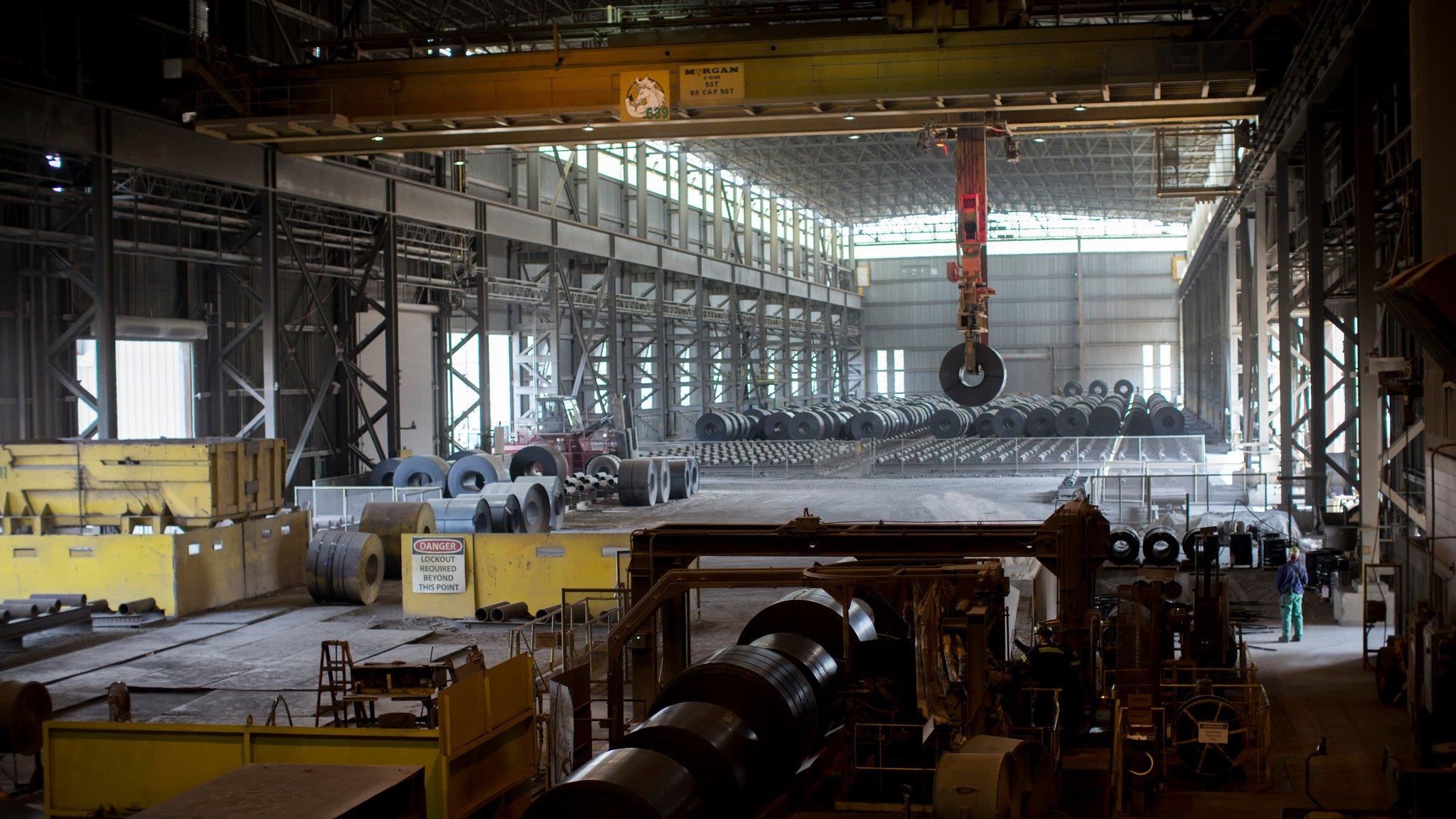WASHINGTON, May 31 (Xinhua) -- U.S. Commerce Secretary Wilbur Ross said on Thursday that U.S. tariffs on steel and aluminum imports from the European Union (EU), Canada and Mexico will take effect from Friday.
U.S. President Donald Trump has decided not to extend the temporary steel and aluminum tariff exemptions for these three key trading partners, Ross told reporters at a conference call.
"We look forward to continued negotiations with Canada and Mexico on one hand and with the European Commission on the other hand as there are other issues we need to get resolved," he said.
In March, Trump announced plans to impose 25-percent tariff on imported steel and 10 percent on aluminum, while delaying implementation for some trading partners to offer concessions to avoid the tariffs.
The White House said in late April that the steel and aluminum tariff exemptions for EU member countries, Canada and Mexico would be extended until June 1 in order to give "a final 30 days" for them to reach agreements over trade negotiations. But those negotiations have so far failed to result in a deal.
"The United States was unable to reach satisfactory arrangements, however, with Canada, Mexico, or the European Union, after repeatedly delaying tariffs to allow more time for discussions," the White House said Thursday in a statement.
The Trump administration is using the so-called Section 232 of the Trade Expansion Act from 1962, a decades-old law, to slap tariffs on imported steel and aluminum products on the ground of national security, which has drawn strong opposition from the domestic business community and U.S. trading partners.
The administration's latest move is likely to further increase trade frictions between the United States and its major trading partners.
"The EU believes these unilateral U.S. tariffs are unjustified and at odds with WTO (World Trade Organization) rules. This is protectionism, pure and simple," Jean-Claude Juncker, president of the European Commission, said Thursday in a statement.
EU Trade Commissioner Cecilia Malmstrom added that the EU will now trigger a dispute settlement case at the WTO, since these U.S. measures "clearly go against" agreed international rules.
The EU will use the possibility under WTO rules to rebalance the situation by targeting a list of U.S. products with additional duties, and the level of tariffs to be applied will reflect the damage caused by the new U.S. trade restrictions on EU products, according to the EU.
Analysts said the U.S. decision to move forward steel and aluminum tariffs against Canada and Mexico could also complicate the talks to renegotiate the North American Free Trade Agreement (NAFTA).
Talks on renegotiating the NAFTA began in August 2017 as Trump threatened to withdraw from the 23-year-old trade deal. Following multiple rounds of talks, the three countries remain divided over the rules of origin for autos and other issues.
